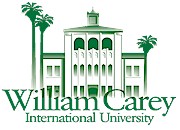Dr. Ralph Winter was a member of the Evangelical Theological Society (ETS), which sent out its biannual newsletter in April of 1978. The editor begins by reminding members of the inauguration of the ETS newsletter the year before as a “house organ” within ETS to serve some of the members by meeting their needs. He says, “Judging by the correspondence and comments received, many of you found that rather modest maiden endeavor helpful, even though our appeal for information received only a 6% response.” This year the Executive Committee of ETS has directed the society to plan on releasing two such letters a year, one in April and one in October. By this time, response to the appeal for information has increased to 12%, which is an energizing 100% growth rate over what it was previously. However, admittedly fourteen members responded by only signing their name and not providing actual information. The editor interprets this to be an encouragement to him in the keeping up of the percentage, for which he thanks them.
The format for the ETS newsletter will remain the same, with announcements given, reports made, and members’ publications and projects listed. The purpose is so members will remain informed about the scholarly research happening within the society, with the goal that common concerns will somehow be brought to the forefront, that cross-fertilization of ideas will occur, and an overall stimulus of evangelical scholarship will result. Should anything that members read in the newsletter stir interest and cause them to want more information, the editor asks them to use the annual ETS directory to find the address of the person involved so that they may contact him or her directly. He writes, “As editor of this newsletter I will attempt to report on the scholarly activities going on within the society, but I cannot serve as a clearing house for ideas nor a resource person for various projects.” Members are best advised to contact directly whomever they find in the newsletter’s listing to be working in their area(s) of interest.
The next issue of this newsletter will be distributed in October of 1978. In this newsletter, the last page asks for information for the October issue. The society is attempting to try this method of requesting information in the first issue for the second issue in order to save on stationary, time and postage in making that second appeal each year. “The [page] asks for the usual features, plus gives an opportunity for research students who will be available for teaching posts in the near future to list their credentials and interests.” So the editor is asking members to fill out the page and mail it back to him by September 1st for inclusion in the October 1978 newsletter.


